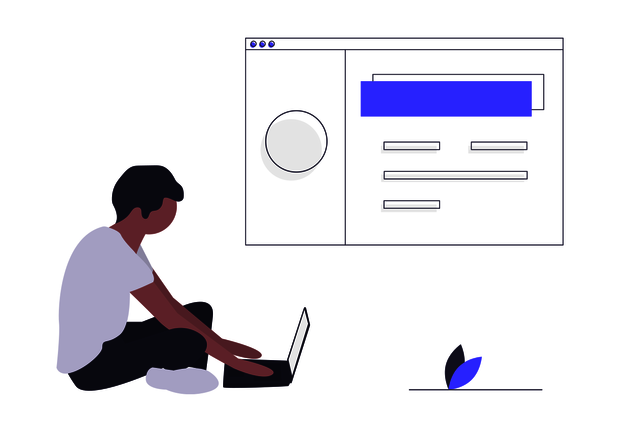
When Is It Time to Introduce PWA in Your e-Commerce Business?
Progressive web applications (PWA) are a new standard in e-commerce web development.
AliExpress, Alibaba, Flipkart and other top e-commerce companies have already moved their businesses to PWA. Such solutions promise to bring a lot of benefits, including a spike in user engagement, conversions and improvements in page load times.
Two years after Magento announced the support of PWAs, they are finding extensive use in many companies. Magento has dedicated a lot of time to discuss such applications, which is another indicator that right now is the best time to comprehend Magento PWA development.
In this article, we overview the main benefits of Magento PWA and answer a few urgent questions.
What Are Progressive Web Apps?
Progressive web applications were first introduced in 2015 by Google. PWA is a website that feels and looks like an app on mobile devices. Employment of such solutions is very beneficial for business, as it eliminates the need to develop separate applications for web, Android and iOS, thus significantly decreasing development costs and time.

In 2018, Magento released PWA Studio, a set of tools designed for the development and maintenance of PWA storefronts on top of Magento 2. The release marked the start of a new era of Magento development, as now the owners of Magento websites can create such solutions on the e-commerce platform that they are already using. If a store is running on Magento, it is possible to migrate it to Magento PWA with the tools provided by the Adobe company.
Benefits of PWA
PWAs are in the spotlight of attention among top companies. Businesses look in their direction because of the promised benefits. These are numerous and cover both advantages for companies and customers.
Let’s review the main strengths of Magento PWA development in relation to your e-commerce business.
- Device-agnostic – PWAs work on any device and browser, allowing customers to view the content of e-commerce websites on devices of their choice.
- Easy to find – Unlike native applications, progressive web apps have a lot of properties of traditional websites. They are ranked by search engines just like any other website, which makes them highly discoverable by the target audience. In this term, they are superior to native apps that you can mainly promote in app stores.
- Linkable – Another feature PWA inherited from websites is the Uniform Resource Identifier (URI). This property is especially crucial for end users, as the progressive web application can retain information and reload its state. In a nutshell, it is mainly used when users share the app’s URL with others, which allows the app to behave just like any website.
- App-like appearance – PWA feels and looks like a native application on any mobile device. Unlike hybrid solutions, this type of apps provides a smoother user experience, as they require less workaround to overcome restrictions of certain devices. Even more, PWA can be added to a home screen, increasing the chances of user re-engagement.
- Low development cost – As was already mentioned, by eliminating the need to create a few versions of your store, PWA reduces development cost and allows to deliver solutions faster.
- No updating – The structure of PWAs allows them to update automatically without asking users for permission. This feature creates an uninterrupted user experience.
- Offline operation – The main difference as compared to traditional websites is the ability of PWAs to run without a network connection. The built-in cache system automatically saves information that users previously viewed within the app, allowing them to access it even offline. This capability reduces catalogs abandonment rates and increases customer conversion. Also, it makes PWAs great for countries with low internet speed.
- No need to pass requirements – The App Store and Google Play are notorious for a strict set of requirements that every application must meet. If some company fails to do so, app stores can remove applications without notice. The creation of a PWA allows business owners to overcome such challenges as no requirements limit them.
- Push notifications – In e-commerce, there is nothing better than push notifications. According to statistics, 60% of PWAs’ users allow such app to send push notifications. These can be used to advertise products, inform about special offers and discounts, and even remind about products added to the shopping cart.
- Security – This is an undeniable advantage of PWA development. Such applications rely on the HTTPS protocol for data safety. It protects from precluding shopping, content tampering, man-in-the-middle attacks and other security issues.
The above are the main reasons why many big companies have already adopted PWAs and others are developing them right now.
Successful Case Studies of PWA Adoption
The list of case studies of PWA adoption is extensive, as many brands have already implemented such solutions. Below you can find some vivid examples with the main benefits that companies got.
Company | Issues | Main Benefits |
Alibaba | Low user engagement on mobile | 76% increase in conversion rate 14% active users on iOS and 30% on Android |
AliExpress | Low engagement, low number of app downloads | 104% increase in conversion rate |
Lancôme | Low mobile conversion | 17% increase in conversions 51% increase in iOS sessions 8% increase in conversion and recovered carts with push notifications |
Flipkart | Poor web user experience | 3x increase in session durations 40% increase in re-engagement rate 70% increase in conversion rate |
Jumia | Slow internet connection in Africa caused low app downloads | 33% increase in conversion rate 50% decrease in bounce rate 12x more users (both iOS and Android) |
The above examples demonstrate real results e-commerce companies get after migrating to PWA. In instances when you have a limited budget, don’t have much time for development, and need to improve conversion rate and enhance user engagement, the development of a progressive web application might be the best solution.
Progressive e-Commerce Business With PWA
PWA is the biggest trend in e-commerce. Right now, it is gaining momentum and will reach its peak when every merchant is using PWA for their e-commerce websites. The need for such solutions can’t be underestimated.
According to researches performed by Google, more than half of all traffic to e-commerce websites comes from mobile devices. The number of users who make purchases from their mobile devices is also rapidly growing. Still, not many of them are willing to download native applications, even those released by their favorite e-commerce websites. Hence, progressive web apps are the future for e-commerce since they allow users to have the same level of speed and user experience as with native apps, but all they need to do is to open the website URL in the browser.






